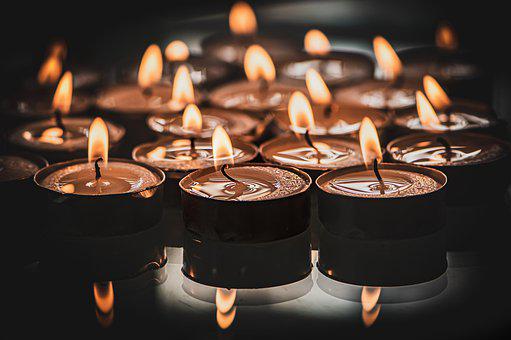One of the most frequently asked feng shui questions is, “What are the best numbers for a house?” “. In reality, most feng shui practitioners of all schools rarely look at numerology when it comes to a house number. However, you can always look at the numerological connection with the Bagua to glean more information about your house.
When looking at house numbers and Bagua numerology, keep in mind that it is not that some numbers are good and some are bad. More importantly, it doesn’t make or break feng shui; rather think of it as a way to learn more about the energy potential of your home and how you can harness the qi in your environment to benefit your life.
The basics of numerology
Before we look at each number and its Bagua meaning, let’s review some numerology basics. First of all, there are many different numerological traditions. With each school of approach, the meanings and interpretations of numbers can vary greatly. Sometimes some feng shui practitioners have expertise in numerology as a separate modality and incorporate these methods into their practice. If you’re curious about using Bagua numbers to find your house number, consider using the common practice of reduction. With this practice, you simply reduce your house and/or apartment number to a single digit.
For example, if your house number is 1986:
- Add: 1+9+8+6 = 24
- Reduce to a single digit: 2+4 = 6
In another example, if your house number is 36019:
- Add: 3+6+0+1+9 = 19
- Reduce to a single digit: 1+9 = 10
- Reduce to a single digit: 1+0 = 1
Bagua for house numbers
The Bagua is the energy map of feng shui. There are eight zones, or guas, around a center. Each area is linked to an aspect of life as well as a series of other characteristics, including a number. Each gua corresponds to a number. This is also related to the Ki numerology of the nine stars as well as the I Ching.
| Number | Meaning | Bagua area | Features | Element |
| Potential | ||||
| 1 | new beginnings | Kan (Career) | Intuition, independence, wisdom | Water |
| 2 | Balance | Kun (Partnership) | Feminine, sensitive, nurturing | Yin Earth |
| 3 | Family, self-expression | Zhen (Family) | New beginnings, growth, vitality | Yang Wood |
| 4 | Stability | Xun (wealth) | Abundance, stability, deep roots | Yin wood |
| 5 | Adventure | Tai Qi (Health) | Connect, Protect, Gather | Earth |
| 6 | calm, patience | Qian (Helpful People) | Leadership, precision, loyalty | Yang Metal |
| 7 | Contemplation, loneliness | Dui (Children) | Joy, relaxation, ease | Yin Metal |
| 8 | Abundance, success in business | Gen (Knowledge) | Individuality, fortitude, contemplation | Yang Earth |
| 9 | Fulfillment | Li (fame) | Inspiration, brilliance, visibility | Fire |
Cultural references
Cultural references often tied to language are sometimes confused with feng shui rules when it comes to house numbers.
The word “four” in Chinese and Japanese sounds the same as the word “death”. This is why in East Asian countries like China, Japan, and Korea, there is an aversion to the digit four in a house or apartment number. It’s a bit like the unease an English speaker would feel living on a street called “Dead Man’s Alley”.
Another example that we know well in the western world is the number 13. While the number “four” suits us perfectly, we avoid the number 13 because it is associated with bad luck. Many buildings in the United States avoid naming a 13th floor. So in the elevator you will see buttons going from floor 12 to floor 14.
It is useful to know this depending on your situation. If you are buying a house and looking to resell it in the future in an area where there are a lot of Asian families, then maybe a house number that contains four is not the best investment. On the other hand, if you already live there, or if apartment n°4 on the fourth floor is perfect for you, go for it. It’s not bad feng shui.
We would love to thank the author of this article for this remarkable material
The Feng Shui of House Numbers | Nostrodomus
Check out our social media profiles as well as other related pageshttps://nimblespirit.com/related-pages/

